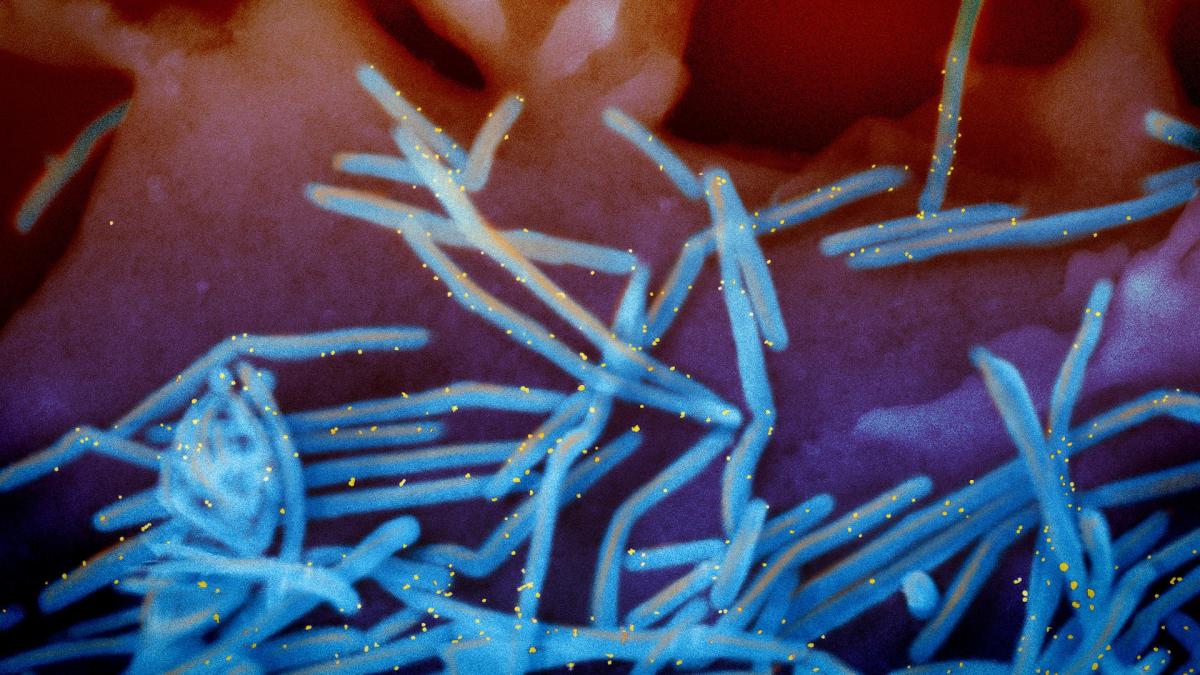
Ever heard of RSV? If you’re in Georgia, you might want to learn about it because the Centers for Disease Control and Prevention says there’s a lot of it in the wastewater.
Here’s a closer look at the virus, what it does, and how serious of an issue this is:
What is RSV?
Respiratory Syncytial Virus is a common respiratory virus that infects the nose, throat, and lungs. RSV spreads in the fall and winter along with other respiratory viruses. It usually peaks in December and January.
Advertisement
Advertisement
Weather update: Will Winter Storm Cora impact Georgia? National Weather Service weighs in with forecast
How high is the risk of RSV in Georgia?
Based on four sites in Georgia reporting data to the CDC, the state’s levels of RSV are classified as “very high” based on data from last month. There are six other states with “very high” concentrations including Alaska, Connecticut, Kentucky, Louisiana, Massachusetts and Missouri.
Areas with “high” levels include Alabama, California, District of Columbia, Maryland, Nevada, North Carolina, Ohio, Texas, Tennessee. Levels for Pennsylvania, Virginia, and Washington.
Another CDC dashboard shows that Georgia has reported about 13.7% positive RSV tests over a three-week period as of Jan. 3. While that may not sound like much, it makes Georgia one of those in the highest range among states.
How serious is RSV?
While most cases of RSV are mild, the illness can affect all ages, and may develop into severe infections especially for premature babies, infants, older adults and those with heart and lung disease or weak immune systems. Vaccines are available for older Americans and those who are pregnant to protect newborns.
Advertisement
Advertisement
RSV infections that spread can also cause pneumonia or bronchiolitis (inflammation of the small airway passages entering the lungs), according to the Mayo Clinic
The CDC says that, yearly, RSV leads to 58,000–80,000 hospitalizations among children younger than 5 years old and 100,000–150,000 hospitalizations among adults 60 years and older. RSV also accounts for about 2.1 million U.S. outpatient visits among children younger than 5 years old.
To eat or not to eat: We tried Taco Bell’s new chicken nuggets. Here’s our (honest) review of the nugs and sauces
What are the symptoms of RSV?
RSV symptoms generally resemble the symptoms of a common cold, which is why it can be hard to differentiate it among other respiratory viruses. The Cleveland Clinic provided a list of some of the many symptoms that can be caused by an RSV infection:
Advertisement
Advertisement
More in Health
-
Sore throat
-
Congestion
-
Lack of energy
-
Mild headache
-
Runny nose
More severe RSV infections can lead to one or more of these symptoms, the Cleveland Clinic says:
-
Extreme tiredness or weakness
-
Low appetite
-
Persistent cough
-
Shortness of breath
-
Bluish skin, lips or nails
-
Sudden change in mental state
According to the Mayo Clinic, additional signs and symptoms of severe RSV infection in infants include:
-
Short, shallow and rapid breathing
-
Struggling to breathe − chest muscles and skin pull inward with each breath
-
Poor feeding
-
Irritability
What to do if you think you have RSV
Similarly to common colds, mild cases of RSV generally resolve on their own within one to two weeks, according to the CDC. The Cleveland Clinic suggests the following treatment while ill:
-
Drink plenty of fluids.
-
Use a cool mist vaporizer.
-
Take over-the-counter medications and home remedies to manage a fever and pain with acetaminophen (Tylenol) and ibuprofen (Advil). Note: Talk to your provider before taking any cold medications. Some may interact with other medications you’re taking.
-
Continue taking prescription medications for asthma, COPD or other conditions as your provider recommends.
If you are having difficulty breathing or experiencing worsening symptoms, the CDC advises you seek emergency care. Especially seek immediate medical attention if your child – or anyone who’s ill with RSV – has difficulty breathing, a high fever, or a blue color to the skin, particularly on the lips and in the nail beds, the Mayo Clinic recommends.
Advertisement
Advertisement
Mike Snider, USA TODAY Network, contributed to this report
Miguel Legoas is a Deep South Connect Team Reporter for Gannett/USA Today. Find him on X and Instagram @miguelegoas and email at mlegoas@gannett.com.
This article originally appeared on Augusta Chronicle: Georgia has high risk of RSV: CDC report
EMEA Tribune is not involved in this news article, it is taken from our partners and or from the News Agencies. Copyright and Credit go to the News Agencies, email news@emeatribune.com Follow our WhatsApp verified Channel




